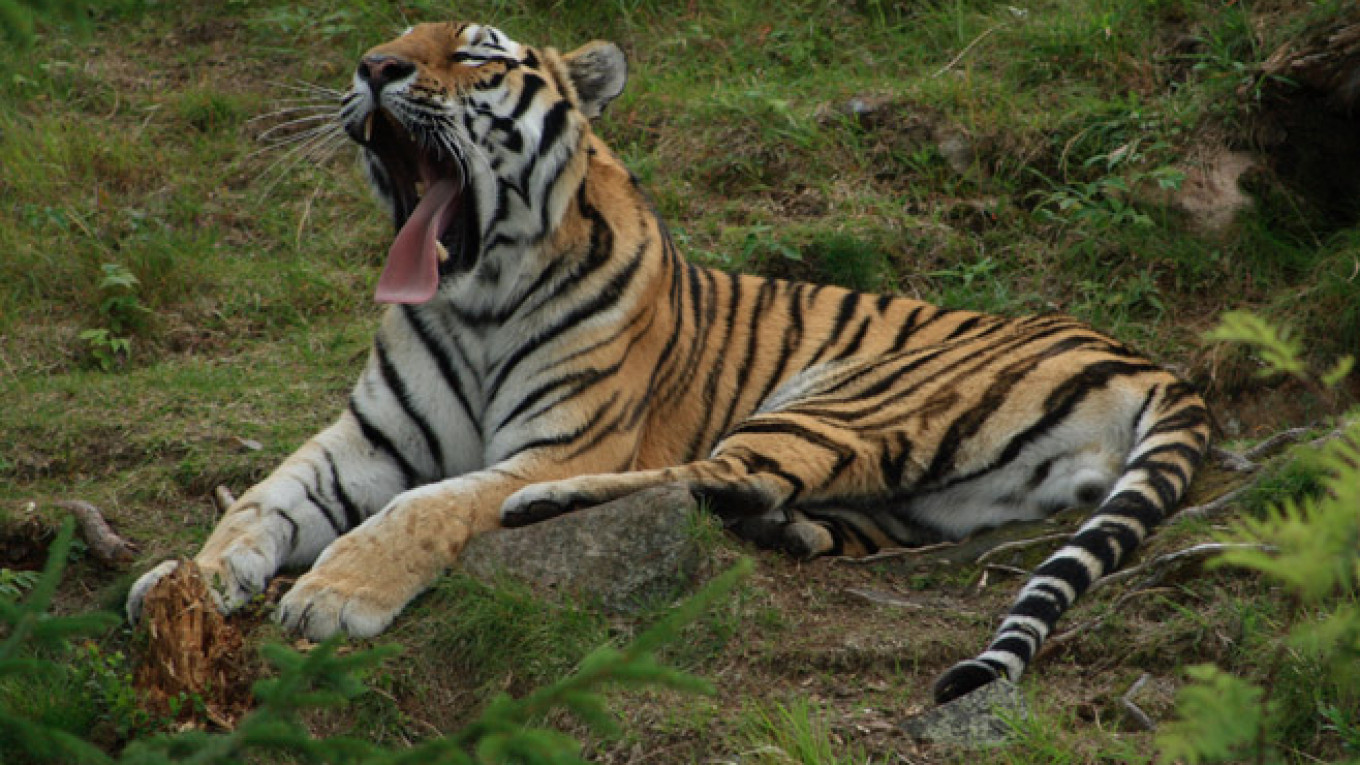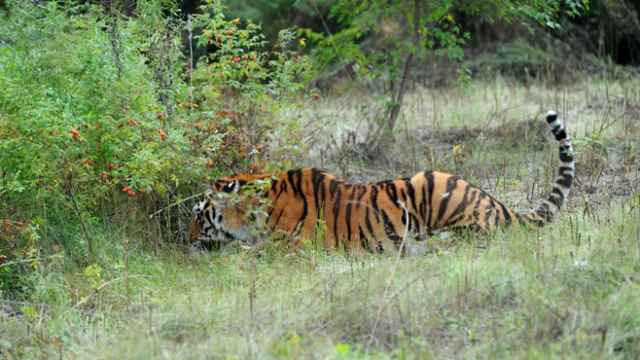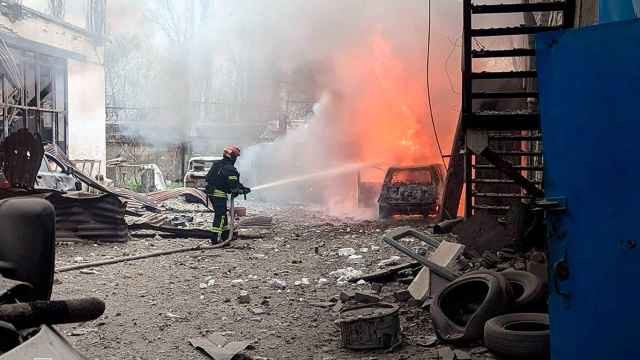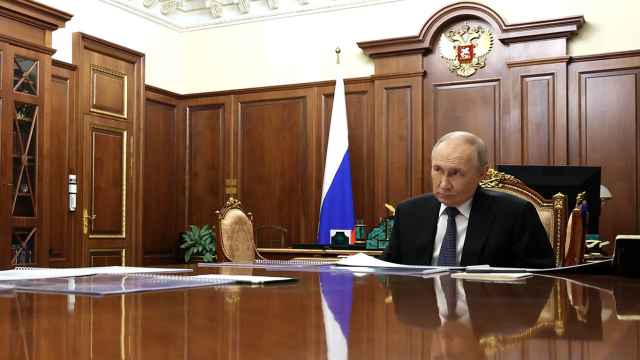A female tiger released into the wild by President Vladimir Putin in the spring has adapted to life in Russia, showing no desire to follow its littermates to China and instead gorging on wild swine.
Ilona the Amur tigress has settled in the Khingansky nature reserve in the far-eastern Amur region, the reserve said on its website.
She spent a lot of time wandering the land, but has recently started marking her territory in the reserve to peg it as her permanent home, the report said.
Ilona has also killed at least three times in the past two weeks, with all the victims being wild piglets. One did not even have time to wake up, as it was killed in its sleep.
The territory taken over by the big cat was previously inhabited by a pack of wolves who were forced to migrate, the report said. It was unclear whether their expulsion was violent.
Ilona is part of a litter of five parentless cubs found in the taiga two years ago and nursed at a tiger rehab center in Russia's Far East.
In May, Putin personally supervised the release of three cubs, all of them now collared. The two others were released in June.
Two of "Putin's tigers," males Kuzya and Ustin, proved to be more restless than Ilona.
Both crossed the wide Amur River into China to wreak havoc on the local livestock, though they returned earlier this month.
The remaining two — Borya the tiger and Svetlaya the tigress — have also stuck around in Russia since their release.
Amur tigers — the biggest cats in the world, along with Bengali tigers — are an endangered species, with only 450 estimated to remain in the wild.
A Message from The Moscow Times:
Dear readers,
We are facing unprecedented challenges. Russia's Prosecutor General's Office has designated The Moscow Times as an "undesirable" organization, criminalizing our work and putting our staff at risk of prosecution. This follows our earlier unjust labeling as a "foreign agent."
These actions are direct attempts to silence independent journalism in Russia. The authorities claim our work "discredits the decisions of the Russian leadership." We see things differently: we strive to provide accurate, unbiased reporting on Russia.
We, the journalists of The Moscow Times, refuse to be silenced. But to continue our work, we need your help.
Your support, no matter how small, makes a world of difference. If you can, please support us monthly starting from just $2. It's quick to set up, and every contribution makes a significant impact.
By supporting The Moscow Times, you're defending open, independent journalism in the face of repression. Thank you for standing with us.
Remind me later.






